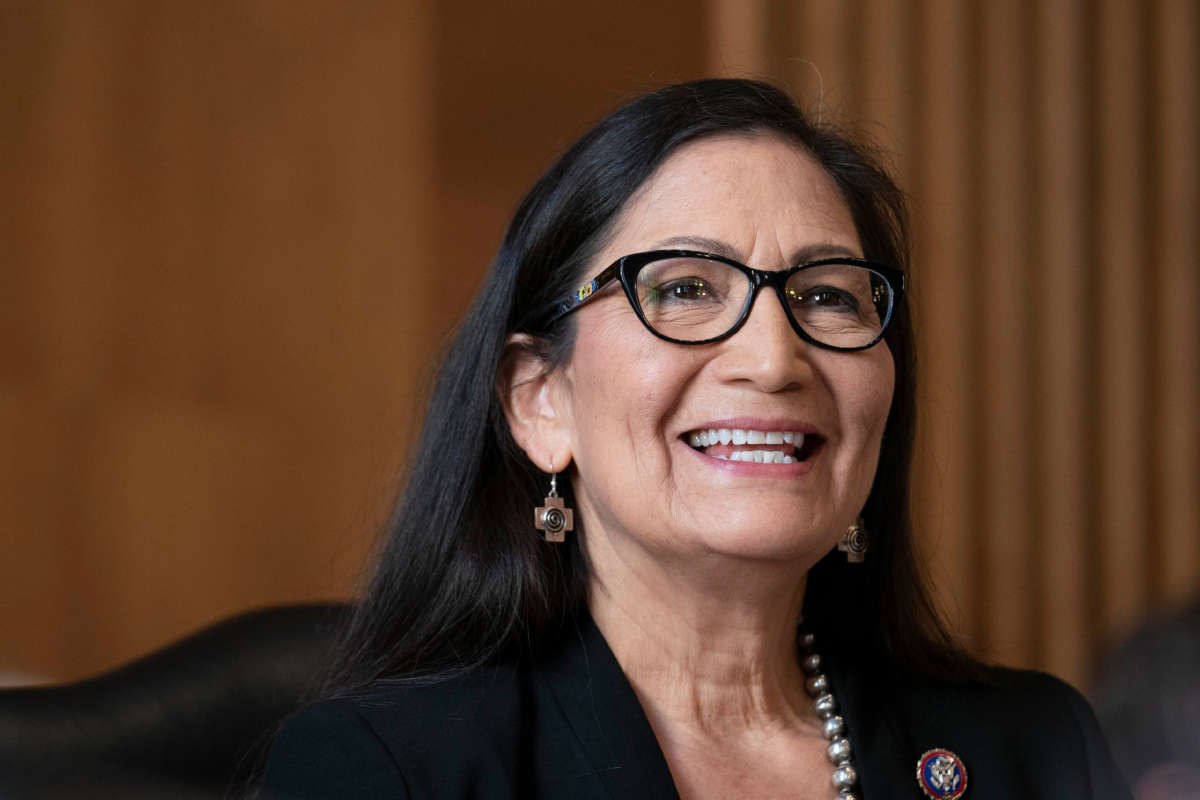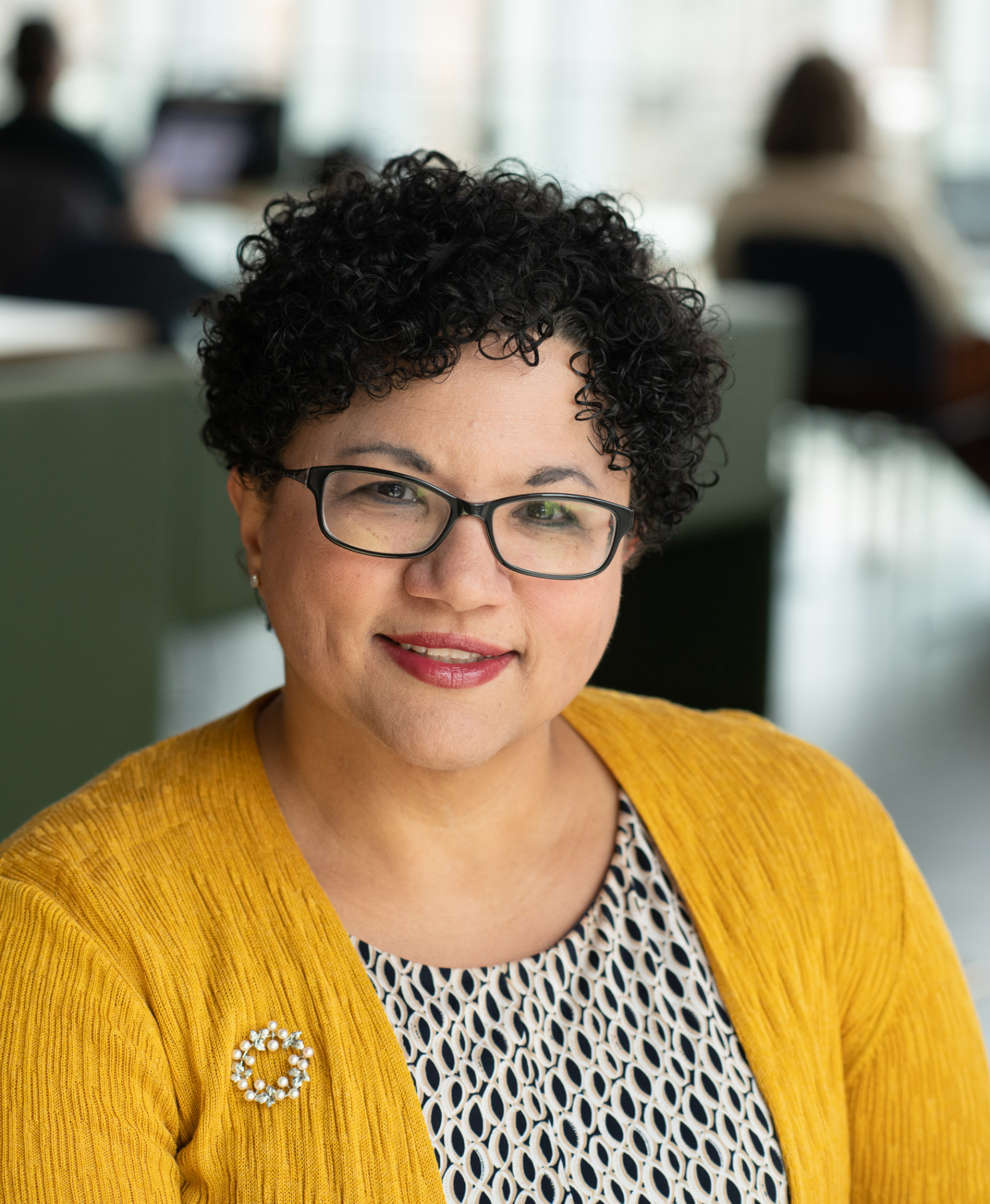
Rep. Deb Haaland during her confirmation hearing for Secretary of the Interior, Feb. 24, 2021. Photo by Sarah Silbiger / AFP via Getty Images
For more than 150 years, the United States Department of the Interior has been charged with “…conserve[ing] and manag[ing] the Nation’s natural resources and cultural heritage for the benefit and enjoyment of the American people …” Although this charge includes engagement with and oversight of the federal trust responsibility for Native American tribes and tribal citizens, this agency was originally tasked with handling what was viewed as the “Indian problem,” setting up an often contentious relationship between the Department of the Interior and tribes.
This is set to change with the confirmation of Rep. Deb Haaland (D-New Mexico), an enrolled member of the Pueblo of Laguna and one of the first Native American women to serve in Congress, as the first Native American Secretary of the Interior. Haaland’s confirmation brings with it an opportunity for the United States to begin to make right its troubled relationship with the more than 600 federally and state recognized tribes located across the nation, many of which have experienced forced relocation, acculturation, assimilation, and loss of land and life at the hands of the federal government and its agents.
Haaland’s nomination by President Joe Biden and subsequent confirmation by the U.S. Senate on March 15 is a momentous and historic occasion not only for Native American tribes and tribal members but for the nation at large. She is the first Native American to serve in a Cabinet position.
As the Secretary of the Interior, Haaland is responsible for ensuring the federal government honors its trust responsibility for tribes and tribal citizens as outlined in treaties entered into between the U.S. government and tribes. Key elements of this trust responsibility include the provision of health, education, and welfare to the nation’s federally recognized tribes and their citizens. The sovereignty of these tribal nations is dependent in large part upon the Department of the Interior’s assumption of its trust responsibilities and its willingness to support tribal self-determination and governance.
Responsibilities, respect and authority
While creating a platform for Native issues and concerns to be heard, oversight of Indian Affairs is only one of many issues Secretary Haaland will be tasked with overseeing. She will also be responsible for fish and wildlife, environmental resources, national parks and other federal lands.
As an American Indian woman, mother, educator, and researcher, I hope that Haaland will be afforded the same level of respect and authority as her non-Native counterparts, as she works to tackle the issues at hand and to serve the nation and its citizens.
As she assumes this position, I urge Secretary Haaland to:
- listen as our elders teach us to do;
- work to ensure that the treaties our ancestors entered into with the federal government are honored and never again abrogated. As Native American activist Winona LaDuke once said, “It’s time to respect the treaties our ancestors signed and care for our land, water, and cultures so that they remain healthy for our future generations.”;
- call upon her cultural teachings and values when making decisions and remember that our Indigenous knowledges and ways of knowing will help to keep one on the good path and to redirect them when they begin to waiver; and most of all,
- remember that our children and youth are looking to her to ensure that our lands are protected and our resources are sustained for future generations.

Haaland will certainly encounter many challenges once confirmed. In the midst of these challenges, my hope is that she will be buoyed by the knowledge that she is not only making history, but that she is living and leading in a way that acknowledges, affirms, and honors the Indigenous peoples of these lands. Our tribes and tribal communities deserve nothing less.
Dr. Susan C. Faircloth, an enrolled member of the Coharie Tribe of North Carolina, is professor and director of the School of Education at Colorado State University. She is a graduate of the American Indian Leadership Program (AILP) at Penn State, a former Fulbright Senior Scholar to New Zealand (Aotearoa), and a Ford Foundation Postdoctoral Scholar. Her research focuses on the education of Indigenous children and youth. Faircloth currently chairs the technical review panel for the National Indian Education Study, the only nationally representative study of the education of American Indian and Alaska Native students.